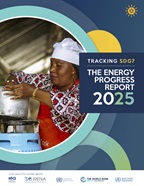
Health science and policy summaries
Concise overviews of current evidence on air quality, energy access, climate change, and health
Highlights

Concise overviews of current evidence on air quality, energy access, climate change, and health

WHO invites governments, agencies and organizations to pledge voluntary actions to reduce the health impacts of air pollution by 50% by 2040.
.jpg?sfvrsn=d51a0bea_8)
Stop polluting the air we breathe – prevent diseases and save lives
/country-readiness-strengthening-(crs)/community-readiness-and-resilience-(crr)/beat-the-heat-banner-cropped.jpg?sfvrsn=a5bbb703_3)
Initiative against extreme heat and related environmental health risks in workplaces and major events
News
All →Factsheets
All →Calls For
All →WHO, as the coordinating authority on international health, supports countries in protecting public health through evidence-based policies and actions....
Exposure to air pollution and its associated health impacts are affected by land use practices including their regulation and enforcement. Understanding...
Exposure to green spaces is widely associated with health benefits, including mental (e.g. reduced risk of depression and anxiety), physical (e.g. improved...
Sand and dust storms (SDS) result from turbulent winds that raise large quantities of particles from the ground into the air in emission areas. Emission...

Tracking SDG 7: The Energy Progress Report 2025 finds that almost 92% of the world’s population now has basic access to electricity. Although this...

The Energy Progress Report 2025 finds that almost 92% of the world’s population now has basic access to electricity Although this is an...

The directory is an online repository with more than 200 open access resources and tools updated on a regular basis that provide information on the importance...

The WHO Air Quality, Energy and Health Science and Policy Summaries (SPS) provide concise overviews of current knowledge and evidence on topics related...
Multimedia
All →VGS What if the air your child is breathing is harming their brain? Stealing them of their chance to learn, thrive and grow? This invisible danger is real, urgent and happening now. We are talking about air pollution and its impact on our brain. And what countries are doing to stop it. From London to Bogota. New studies have emerged linking air pollution to dementia, anxiety and depression affecting your brain and mental health.
We are talking to Doctor Maria Neira today.
Welcome, Maria. Let's start with the impact of air pollution on our health.
MN Thanks Vismita. Yes. Air pollution is the biggest environmental risk factor for our health. Every year we have 7 million deaths caused by exposure to air pollution. This is a horrible number. Let me give you another figure. Nine out of ten people in the world is breathing air, which quality's not aligned with the recommendations.
The guidelines of the World Health Organization. Those little tiny particles in the polluted air, they can go very deep in our lungs. And they can affect as well our brain. But air pollution is not just affecting our lungs, and our brain is affecting as well the rest of our body responsible for stroke, cardiovascular diseases, asthma, and even lung cancer.
VGS So, Maria, you talked about the tiny particles, the PM 2.5 and Pm10 that we've all heard about, right. But it's not just that. It's also the gases the carbon monoxide, ozone, etc.. Right. I remember when we were in New Delhi, our child, my daughter, was very young at that time. We worried about her lung health, but we also worried about her cognitive development in that kind of air pollution. Can you elaborate on the impact of air pollution on children's health?
MN Let me give you an example. When you are pregnant, if you are exposed to high levels of pollution, then you might be at risk of low birth weight, premature birth, and even problems from the development of the of the fetus as a child. This child, exposed to high levels of pollution, will have difficulties and more likely to develop asthma, for instance, in later in life. Chronic health issues. In addition to that, children are obviously more at risk first because they are on development. They have little lungs in their bodies developing, and then they breathe faster than we do. So they take more quantity of air for their size, and they play outside so that we have more exposure and they cannot control the exposure. So it's our responsibility to protect them and make sure that the health of our children is develop in a healthy environment.
VGS , Maria, if nine out of ten people are breathing polluted air, how can we protect our health?
MN We definitely have some individual measures we can take. We can reduce exposure by avoiding maybe the most trafficked roads or the most congested areas in the city where you leave for avoiding to practice a sport or walking in those very polluted places, or even at home looking at the fuels you use for cooking and making sure that you use the cleanest possible ones. However, those are the individual choices and you are not always able to take those choices. So it's more a question of governments taking very bold legislation, measures and interventions to protect all of us.
VGS So, Maria, we know that this feels overwhelming, right? Feels like what can individuals do? Can you give us examples of cities or countries where this has been turned around and air pollution has been reduced drastically?
MN Absolutely. And we have perfect demonstration that it can be done. For instance, the European Union, the European Parliament has just adopted a directive on air quality, which is very much aligned to WTO recommendations and guidelines that will create a big protection for the health of the Europeans under that legislation. We have examples as well in China, where they have demonstrated that you can reduce air pollution while still maintaining a good economic growth.
MN And then cities, you can obtain incredible results. The mayor of Paris has able to reduce by 50% in the last 20 years the air pollution and therefore all the diseases associated by putting in place some traffic, recommendations, green spaces and more lines for for pedestrians and bicycles. We have the London experience as well ultra low emissions zones demonstrating that air pollution was reduced and respiratory diseases associated have Colombia.
In Bogota, they are putting in place a fleet of busses which are 100% electric. And so there are very good examples. There are many, but we need to push for more. And of course, imagine where everybody will be aware and putting in place these directives and recommendations. It would be a healthier environment for all of us and our health will be so much benefited.
VGS Thank you Maria. That was science and five today. And until next time then stay safe, stay healthy and stick with science.